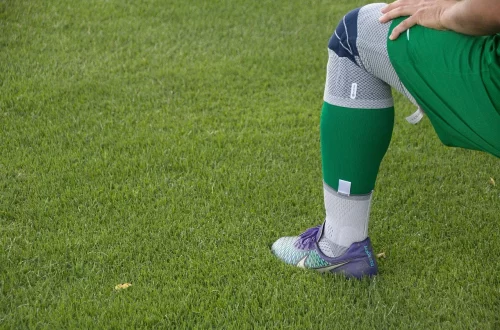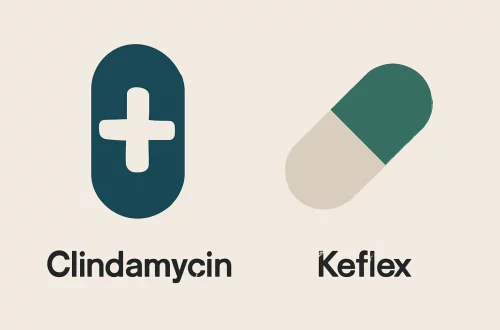
Do Mosquitoes Bite Cats and How to Protect Your Feline Friends?
Mosquitoes are often seen as a nuisance during warm weather, buzzing around and leaving itchy bites on humans. However, these pesky insects can pose a threat to our furry companions as well. As pet owners, it’s crucial to understand the potential risks associated with mosquitoes and how they can affect our cats. Cats, like other animals, can be susceptible to mosquito bites and the diseases that mosquitoes carry. This concern is particularly relevant in regions where mosquito populations flourish and where certain illnesses, such as heartworm, are prevalent.
Understanding the behavior of mosquitoes and their interaction with felines can help pet owners take proactive measures to safeguard their cats from these tiny yet potentially harmful creatures. It’s essential to recognize that while cats may be less frequently targeted by mosquitoes compared to dogs, they are not entirely immune. As we delve deeper into the topic, we’ll explore the effects of mosquito bites on cats, how to protect them from these pests, and the importance of maintaining a safe environment for our beloved pets.
Understanding Mosquito Behavior and Its Impact on Cats
Mosquitoes are attracted to their hosts primarily through scent, heat, and carbon dioxide emissions. They are most active during dawn and dusk, which is when they are likely to encounter pets that may be outside. Cats, unlike dogs, tend to roam less and often find shaded spots to relax. However, this doesn’t make them any less susceptible to mosquito bites, especially if they venture outdoors during peak mosquito hours.
When a mosquito bites a cat, it can cause localized swelling and irritation. Cats may react to bites with scratching, licking, or biting at the affected area, potentially leading to secondary infections if the skin is broken. While many cats may experience minor discomfort, it’s important to note that some can develop allergic reactions to mosquito bites, leading to more severe symptoms such as swelling and inflammation.
Furthermore, mosquitoes are vectors for various diseases that can affect not just dogs but also cats. One of the most concerning threats is heartworm disease, caused by Dirofilaria immitis, a parasitic worm transmitted through the bite of an infected mosquito. Although heartworm is more commonly associated with dogs, cats are also at risk. In felines, heartworm can lead to a condition known as heartworm-associated respiratory disease (HARD), which can be serious and even fatal.
Understanding these risks emphasizes the importance of awareness among cat owners. Taking preventive measures can significantly reduce the chances of mosquito bites and related health issues. With proper education and management, pet owners can create a safer environment for their feline friends.
Effective Strategies to Protect Your Cat from Mosquitoes
Protecting your cat from mosquitoes involves a combination of environmental management, personal care, and preventive treatments. One of the first steps is to minimize the presence of standing water in your yard, as this serves as a breeding ground for mosquitoes. Regularly emptying bird baths, flower pots, and gutters can help reduce mosquito populations around your home.
Creating a mosquito-free zone in your outdoor space is another effective strategy. Installing screens on windows and doors can prevent mosquitoes from entering your home while allowing fresh air to circulate. Additionally, using mosquito repellent plants, such as citronella, lavender, and marigolds, can deter these insects from your garden.
When it comes to your cat’s grooming, regular brushing can help remove loose fur and debris that may attract mosquitoes. While cats are generally good at grooming themselves, providing assistance with regular brushing can help maintain their coat and skin health.
Moreover, there are commercial mosquito repellents available that are safe for use around pets. However, caution is essential when choosing products, as not all repellent formulations are safe for cats. Always consult your veterinarian before applying any repellents or treatments to ensure they are suitable for your feline friend.
In addition to these preventive measures, consider scheduling regular veterinary check-ups for your cat. Your veterinarian may recommend heartworm prevention medication, which can be a crucial part of keeping your cat safe from the dangers mosquitoes pose. Regular testing for heartworm and other mosquito-borne diseases can also help catch potential issues early, allowing for timely intervention and treatment.
Recognizing the Signs of Mosquito-Related Health Issues in Cats
Being vigilant about your cat’s health is essential, particularly during mosquito season. Recognizing the signs of potential health issues related to mosquito bites can help you respond quickly. Common symptoms to watch for include excessive scratching or licking at bite sites, which may indicate irritation or an allergic reaction.
If your cat begins to show signs of lethargy, coughing, or difficulty breathing, these could be symptoms of heartworm disease or other serious conditions. Since cats are often less vocal about their discomfort than dogs, changes in behavior such as hiding, decreased appetite, or reduced playfulness can also be indicators of health issues.
In the case of a mosquito bite, localized swelling or redness may occur. If you notice these symptoms, it’s vital to monitor the area closely. If the swelling does not reduce over time or if your cat develops additional symptoms, seeking veterinary advice is crucial.
Additionally, if your cat has been diagnosed with heartworm, treatment options are available but must be administered under the care of a veterinarian. The treatment process can be complex, and it’s essential to follow your vet’s advice closely to ensure the best outcome for your cat.
Being proactive and observant can make a significant difference in your cat’s health and well-being. Regular check-ups and open communication with your veterinarian are key components in managing your cat’s health and preventing mosquito-related issues effectively.
Creating a Safe Indoor Environment for Your Feline Companion
One of the best ways to protect your cat from mosquitoes is to create a safe indoor environment. Keeping your cat indoors, especially during peak mosquito activity times, can significantly reduce their risk of bites. Indoor cats are less exposed to mosquitoes and are also protected from various outdoor hazards.
To enhance your cat’s indoor environment, provide plenty of stimulation and enrichment. Cats are naturally curious and need mental and physical engagement. Toys, scratching posts, and climbing structures can keep your cat entertained and active, reducing their desire to go outside.
Consider using air conditioning or fans to keep your home cool and comfortable during warmer months. This not only creates a pleasant living space for your cat but can also discourage mosquitoes, as they prefer warm, humid environments. Installing screens on windows and doors can allow fresh air in while keeping mosquitoes out.
Additionally, be mindful of any openings or gaps in your home where mosquitoes could enter. Regularly inspect window screens and door seals, ensuring they are intact and functioning properly. If you notice any issues, repairing them promptly can help prevent mosquito entry.
Using a mosquito trap or repellent indoors can also be an effective strategy. There are several products available on the market that are safe for pets and can help reduce the mosquito population in your home. Always read labels carefully to ensure the safety of your cat.
Creating a safe and comfortable indoor environment allows your cat to thrive while minimizing their exposure to potential mosquito bites. Your attention to their needs and well-being will provide peace of mind, knowing that you are taking proactive steps to protect them.
In conclusion, while mosquitoes can pose a threat to our feline friends, understanding their behavior and implementing protective measures can greatly reduce the risks. Always consult with your veterinarian for personalized advice regarding your cat’s health and safety.
**Disclaimer: This article is not intended as medical advice. For any health concerns regarding your pet, please consult your veterinarian.**




